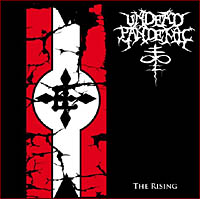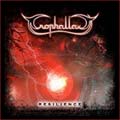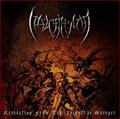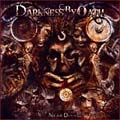UNDEAD PANDEMIC (uk) - The Rising (2012)

Label : Auto-Production
Sortie du Scud : 28 mai 2012
Pays : Angleterre
Genre : Brutal Electronic Grind
Type : Album
Playtime : 14 Titres - 32 Mins
UNDEAD PANDEMIC était au départ une entité, qui est vite devenue un one-man-project, mue par un désir de liberté totale de son créateur. Né en 2008 sous l’impulsion Ben Murphy, du côté du Bedfordshire, ce projet « musical » est une pièce originale vraiment à part, même sur le circuit indépendant de la musique extrême. Difficile en effet de le ranger dans une catégorie bien précise, puisque Ben pioche ses influences un peu à droite à gauche pour arriver à un résultat surprenant, versatile et pourtant assez cohérent au final.
Mais The Rising n’en est pas à un paradoxe près.
L’histoire ? En gros 2012, ça va être le bordel. La terre va être envahie de zombies, rappelés à la vie par un culte satanique qui désire régner en maître sur la planète. Joli programme. Et donc, avant d’être tous bouffés façon tartare bien gore, UNDEAD PANDEMIC nous envoie un message pour nous préparer à tout ça. C’est l’intention qui compte.
The Rising n’est pas à mettre entre toutes les oreilles. Premièrement parce que ça fait beaucoup de bruit, deuxièmement parce que c’est assez bordélique, troisièmement, parce que le son très spécial risque d’en rebuter plus d’un, habitués à un certain confort auditif.
En effet, le sieur Murphy, dans ses velléités d’indépendance fait usage d’une boite à rythme, bloquée la plupart du temps sur un tempo supersonique, mais qui dispose d’un son assez maigrelet. Sa voix est en outre très filtrée, un peu comme dans les passages les plus compressés de MINISTRY ou SKINNY PUPPY. On aime ou pas, au choix.
La guitare est mixée très en arrière, laissant la part belle aux arrangements et autres effets qui sont le réel point fort de cet album. Car en mettant la musicalité de côté, Murphy arrive à nous plonger assez vite dans une ambiance poisseuse et délétère, pour peu qu’on se laisse envahir par les sons environnants. Il utilise aussi quelques samples, d’une façon assez modérée, et on reconnaîtra au hasard des pistes par exemple, le fameux postulat crépusculaire du Zombie de Romero, « When there’s no more room in hell, the dead walk the earth ».
Dans le fond, cet album ressemble à une croisée des chemins entre le barbarisme numérique de MORTICIAN, et les délires électroniques de CARNIVAL IN COAL. Avec peut être une petite pointe de PROTON BURST pour la froideur et l’aspect cohérent de la narration.
Mais pour établir un parallèle plus fidèle, je me permettrai de comparer The Rising à ces films de série B, tournés en DV, pour un très petit budget. Compensant son manque de moyens par de la créativité que certains jugeront vaine voire inexistante, UNDEAD PANDEMIC se rapproche en effet beaucoup plus d’un Zombie Diaries que d’un Resident Evil. Ne voyez pas dans ce rapprochement une quelconque condescendance, mais il faut quand même reconnaître l’amateurisme de l’entreprise, sans toutefois la désavouer complètement. Car pour peu que vos esgourdes ne soient pas réfractaires à une musique hors norme et assez extrême, vous serez à même d’apprécier à sa juste valeur le travail accompli par Ben Murphy. C’est loin d’être parfait, il y a encore pas mal de travail, mais je pense que si on lui donne un peu plus de moyens, il sera à même de prouver son talent et de continuer ses recherches sonores.
En tout cas, je le remercie sincèrement pour cette petite demi-heure qui m’a bien emportée dans un monde étrange et personnel, et si The Rising reste la bande originale d’une apocalypse annoncée, je veux bien prendre les armes et y participer.
Ajouté : Mercredi 04 Avril 2012
Chroniqueur : Mortne2001
Score :    
Lien en relation: Undead Pandemic Website
Hits: 9526
|













